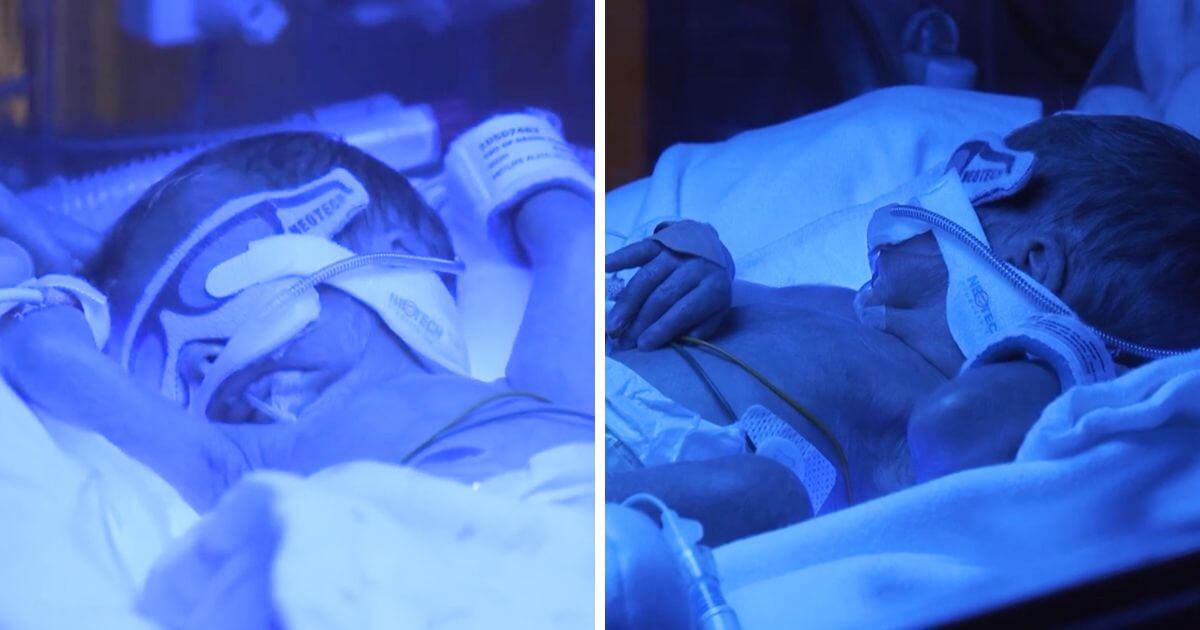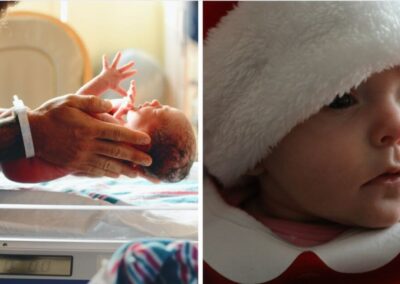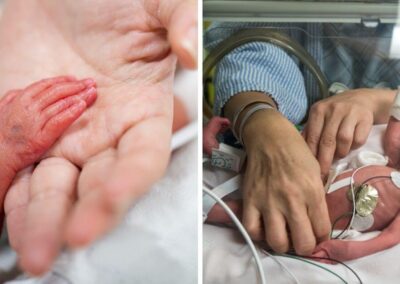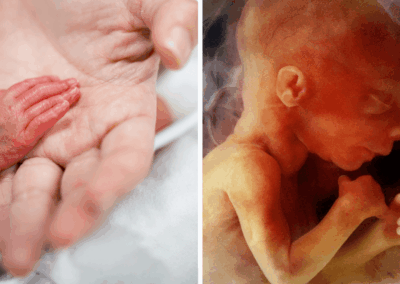Premature twins, George and Jennifer, have gone home after being born at 24 weeks, weighing just over 1lb each, and spending over a hundred days in hospital.
Katrina Pugh, 39-year-old mum from Newmains in Scotland, was coming to the end of her second trimester and pregnant with twins. She was admitted to University Hospital Wishaw for observations suffering from back pains and then discovered she was going into early labour at just 24 weeks gestation.
Her daughter Jennifer was born first, weighing just 1lb 2oz, and was followed by her son George who weighed just over 1lb 5oz. Both babies were immediately placed on life support.
“George and Jennifer were formed but they just didn’t look like you’d expect a baby to look. You could see through them and their eyes were still closed. They were so tiny and you could sit them in the palm of your hand”, their mum said.
“We asked if they were going to be alright, and no one could tell us. They said they would do everything they could…My babies were 24 weeks and these nurses and doctors showed that they could be saved.”
Jennifer and George both required life-saving procedures
Both babies had retinopathy of prematurity, a condition that can affect extremely prematurely born babies, and required injections in their eyes in order to treat this condition. Despite initially being the heavier baby, George had more health issues, suffering from an extended belly, which crushed his lungs and prevented him from breathing. He had to go through four surgeries.
Jennifer was able to go home after 107 days in hospital, but not even a week later, she had to go back for 11 more days. The family are now united again as George is home now too.
“It was such an emotional journey”, Katrina said. “The nurses and doctors at Wishaw are all amazing. The level of care was incredible”.
The NICU at Wishaw is now under threat
Katrina and her partner Barry are now backing a petition to retain the current level of service at the Wishaw NICU, which is due to be reduced. The plan is that babies born before 27 weeks gestation will be transferred to Glasgow, Edinburgh or Aberdeen.
“If what happened to me happens to other mums their babies won’t make it”, Katrina said. “Their chance of life is being taken away from them”.
“I had 12 people in my room at the same time dealing with a tiny new baby. But you’re not going to have all these nurses, doctors and consultants in an ambulance with you. It’s not fair and they should all be given the same chance”.
She added. “I wouldn’t have my weans if it wasn’t for them. We owe them so much”.
Spokesperson for Right To Life UK, Catherine Robinson, said “It is lovely to hear that Jennifer and George are doing so well after their unexpectedly early birth. Stories like these demonstrate how crucial it is that hospitals continue to provide high-quality specialist care for premature babies, without which many more would not survive”.
“Stories like this also show that premature babies like Jennifer and George are little fighters and deserve every chance at life. It is heartbreaking that other babies, only a few days younger in gestation, can legally have their lives ended by abortion in the UK.”












